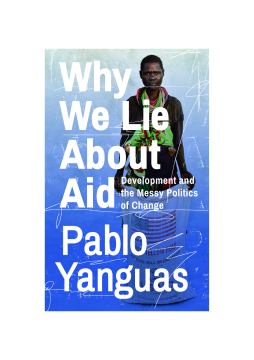
Additional Information
Book Details
Abstract
Foreign aid is about charity. International development is about technical fixes. At least that is what we, as donor publics, are constantly told. The result is a highly dysfunctional aid system which mistakes short-term results for long-term transformation and gets attacked across the political spectrum, with the right claiming we spend too much, and the left that we don't spend enough.
The reality, as Yanguas argues in this highly provocative book, is that aid isn't – or at least shouldn't be – about levels of spending, nor interventions shackled to vague notions of ‘accountability’ and ‘ownership’. Instead, a different approach is possible, one that acknowledges aid as being about struggle, about taking sides, about politics. It is an approach that has been quietly applied by innovative development practitioners around the world, providing political coverage for local reformers to open up spaces for change. Drawing on a variety of convention-defying stories from a variety of countries – from Britain to the US, Sierra Leone to Honduras – Yanguas provides an eye-opening account of what we really mean when we talk about aid.
Pablo Yanguas is a research fellow with the Effective States and Inclusive Development Research Centre (ESID) at the University of Manchester.
‘One of the most exciting books about development aid in many years: original and timely, closely argued and evidenced, and beautifully written.’
David Booth, Overseas Development Institute
‘Elegantly written and passionately argued, Yanguas has provided us with an authoritative guide to current debates within the aid business, and, more importantly, to the crucial political struggles that have always defined the development process.’
Nicolas van de Walle, Cornell University
‘A bold effort to reframe global engagement with development. Yanguas is a leading exemplar of a new, committed and pragmatic generation of scholars and practitioners. His voice deserves to be widely heard.’
Brian Levy, Johns Hopkins University
‘Incisive case studies, a strong command of recent currents in development studies, and a passionate belief in the necessity of development aid, despite all its flaws, bolster this probing inquiry into the politics of aid.’
Thomas Carothers, Carnegie Endowment for International Peace
'Full of pithy quotes, punchy anecdotes and insightful case studies … you should leave this book everywhere, from your friend’s bedside table, to DFID’s tea-room and the doorsteps of the Daily Mail.'
Duncan Green, Oxfam Blogs
'Yanguas entertainingly and persuasively argues that a move away from current aid systems – as institutions too fixated on short-term results – is vital.'
Medicine, Conflict, Survival
'Why we lie about aid plays an important role in showing where we are in terms of the debates around how to do aid and development better, and to more effectively tackle those stickiest of problems like weak governance and corruption.'
Devpolicy Blog
'Well written, informative, and entertaining.'
Population and Development Review
Table of Contents
| Section Title | Page | Action | Price |
|---|---|---|---|
| About the author | iii | ||
| Contents | vi | ||
| Acknowledgements | viii | ||
| Introduction | 1 | ||
| 1. The theatrics of aid debates | 19 | ||
| 2. The banality of certainty | 45 | ||
| 3. The ugly politics of change | 71 | ||
| 4. The limits of donor influence | 97 | ||
| 5. The paradoxes of development\n diplomacy | 123 | ||
| 6. The struggle of thinking politically | 153 | ||
| 7. Understanding the messy politics of change | 179 | ||
| Conclusion | 203 | ||
| Notes | 217 | ||
| Bibliography | 241 | ||
| Index | 259 |
